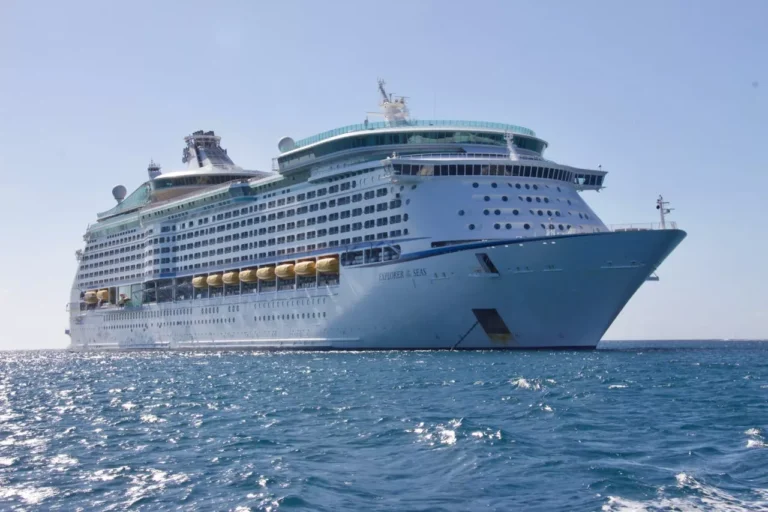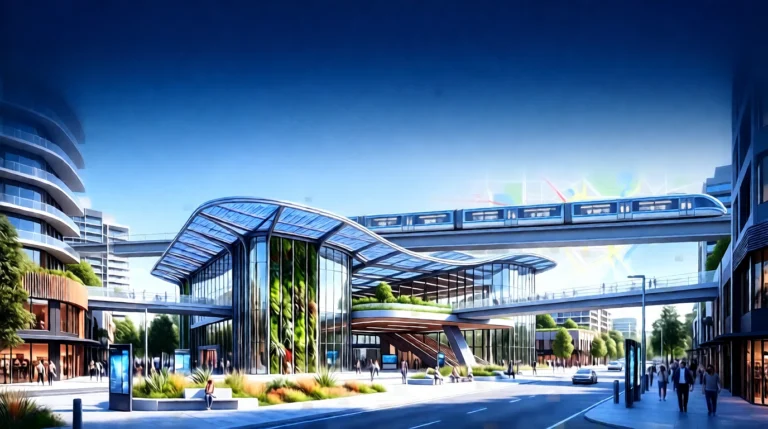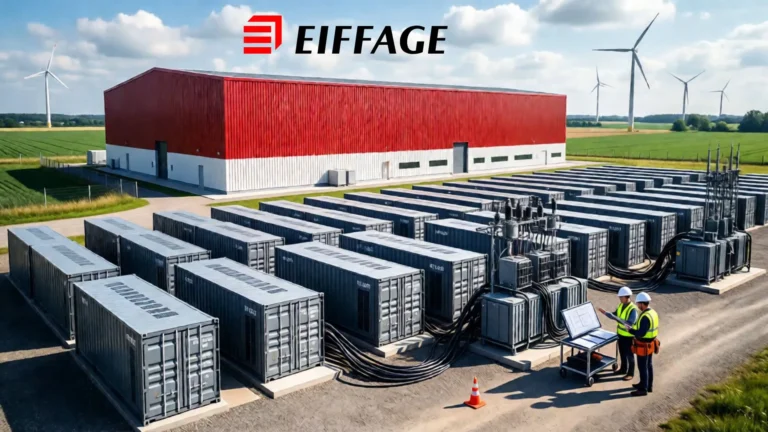
FCC celebrates 125 years of history
In 2025, the FCC Group commemorates an extraordinary milestone: 125 years of continuous service and innovation. Since its founding in 1900, FCC (Fomento de Construcciones y Contratas) has played an integral role in shaping the urban and environmental landscape of cities across the globe. Its contributions span environmental services, integrated water management, infrastructure development, and large-scale concessions—making FCC a cornerstone of civil development and public welfare.
This celebration is not only a tribute to FCC’s enduring legacy but also a reaffirmation of its dedication to building a sustainable, inclusive, and forward-thinking future. Over the last century and a quarter, FCC has proven its ability to adapt to transformative shifts in society, technology, and urban development, extending its footprint to over 25 countries worldwide while continuously prioritizing innovation, efficiency, and the well-being of citizens.
The Early Years: Shaping Modern Cities
At the turn of the 20th century, as Europe began to experience rapid urbanization and industrial development, FCC emerged as a key player in the modernization of urban centers. The company focused initially on urban sanitation and waste management—services that were urgently needed to improve public health and living standards. FCC became synonymous with progress and hygiene, laying the groundwork for clean and livable cities.
Throughout the early decades of the 1900s, FCC’s work expanded in tandem with societal needs. Its projects not only facilitated more sanitary urban environments but also contributed to the broader transformation of cities into more organized, efficient, and habitable places.
Mid-20th Century Expansion: Building Connections
By the mid-20th century, as Spain and other European nations embarked on large-scale modernization efforts, FCC was at the forefront of infrastructure development. Recognizing the growing importance of mobility and connectivity, the company invested heavily in building transport networks. FCC participated in the construction of major highways, railways, and metro lines, which played a crucial role in national economic integration and social mobility.
Simultaneously, FCC extended its services to public space management, including the maintenance and landscaping of parks and gardens. This holistic approach—addressing both hard infrastructure and urban green areas—reflected the company’s evolving philosophy of comprehensive urban well-being.
Global Vision and Environmental Leadership
In the 1970s and 1980s, reflecting Spain’s increasing openness to the world and its integration into the global economy, FCC began expanding its operations internationally. Alongside this global expansion came a growing awareness of environmental stewardship, particularly regarding the management of water resources. FCC took on the challenge of ensuring efficient water supply and management in both domestic and international projects, incorporating innovative technologies to address issues such as scarcity, quality control, and sustainability.
The Group’s engineers began implementing advanced systems for water treatment, supply, and reuse—placing FCC at the forefront of integrated water cycle management. These efforts not only addressed basic utility needs but also aligned with the rising global focus on environmental preservation and climate resilience.
Legacy of Landmark Projects

FCC has been an active contributor to some of the most iconic projects in Spain’s recent history. One such example is the 1992 Seville World’s Fair (Expo ’92), a landmark event that symbolized Spain’s modernization and global presence. FCC was instrumental in building architectural structures that would become permanent city landmarks, including pavilions and bridges that combined functionality with aesthetic innovation.
Another significant contribution was the development of Spain’s high-speed rail (AVE) network, a transformative national initiative that revolutionized domestic travel. FCC’s involvement in designing and building key AVE lines underscored its ability to execute complex, technologically advanced infrastructure projects. These contributions helped redefine Spain’s transportation landscape and provided a model of sustainable, efficient mobility for future generations.
Entering the 21st Century: Embracing Innovation and Sustainability
The dawn of the 21st century brought with it new challenges and opportunities. The adoption of the euro in 2002 and deeper European integration pushed companies like FCC to innovate and align with new standards. In this era, FCC deepened its focus on environmental responsibility, launching significant projects in recycling, waste collection, water purification, and sustainable construction.
Societal engagement became central to FCC’s approach—public participation and the adoption of eco-conscious behaviors were seen as crucial to the success of these initiatives. Through educational campaigns and technological integration, FCC not only implemented sustainable practices but also fostered a culture of environmental awareness.
The company’s technical teams continued to lead innovation across all service areas, applying cutting-edge technologies to optimize operations, increase energy efficiency, and reduce environmental impact. FCC’s investments in R&D have fueled the development of smart solutions in waste-to-energy systems, automated collection vehicles, and digital monitoring of infrastructure projects.
A Future Built on Heritage
Looking ahead, FCC remains firmly committed to building a more sustainable and resilient future. With its historical foundation and global experience, the Group is poised to continue delivering high-impact projects in sectors critical to 21st-century development. These include bridges, tunnels, metro systems, railways, and international airports—as well as large-scale water infrastructure projects that involve every aspect of the water cycle, from extraction and purification to distribution and wastewater treatment.
FCC’s commitment to sustainability is woven into all its activities. The company is expanding its portfolio of environmental services with projects focused on comprehensive waste management, street sanitation, green space maintenance, and advanced sewer systems. These services are essential to creating cleaner, healthier cities and addressing the challenges posed by urbanization and climate change.
The Group also champions resource optimization in every project, striving to reduce consumption while enhancing service quality. This integrated approach reflects FCC’s proactive vision for a greener, more livable urban future.
Powered by People: A Collective Achievement
Behind FCC’s century-plus of success are its people. Today, the Group employs more than 71,000 professionals across its global operations. Their talent, dedication, and responsibility have been the engine behind FCC’s remarkable journey. From engineers and technicians to planners and environmental specialists, each team member contributes to the company’s ongoing transformation.
The celebration of FCC’s 125th anniversary is as much a tribute to this workforce as it is to the company’s historical legacy. It marks the continuity of a vision launched in 1900—one that sees infrastructure, the environment, and human well-being as inseparable pillars of progress.
Continuing the Journey
As FCC enters its next chapter, the company does so with a strong sense of purpose and optimism. It will continue to explore new markets, adopt new technologies, and collaborate with local communities and governments to deliver sustainable, high-quality solutions. The Group’s core values—innovation, environmental commitment, and social responsibility—remain as relevant today as they were over a century ago.
In reaffirming its mission, FCC declares its intent to remain a catalyst for progress—not just maintaining the legacy of the past, but actively shaping the infrastructure of the future. With a steadfast focus on sustainable development and resilient cities, FCC continues its 125-year journey toward creating a better world for generations to come.




